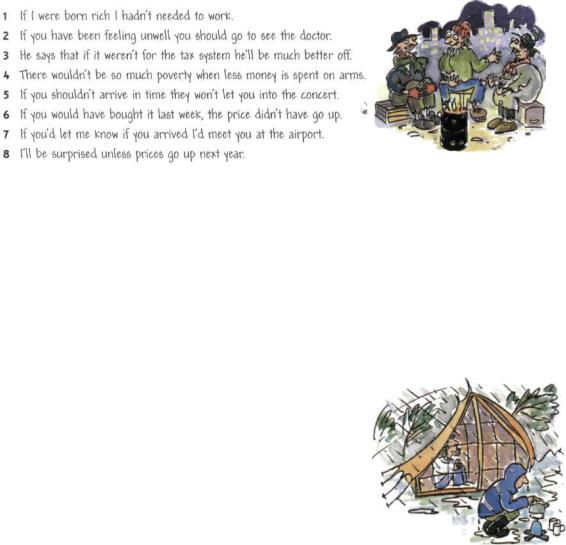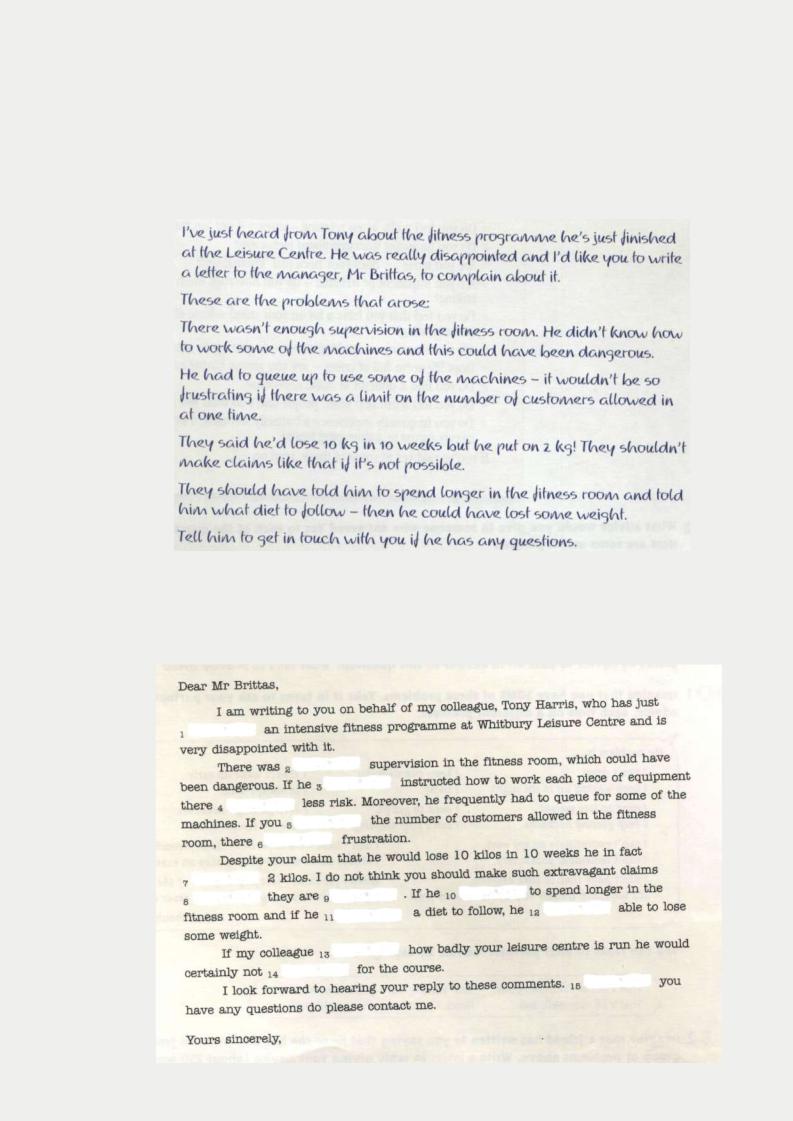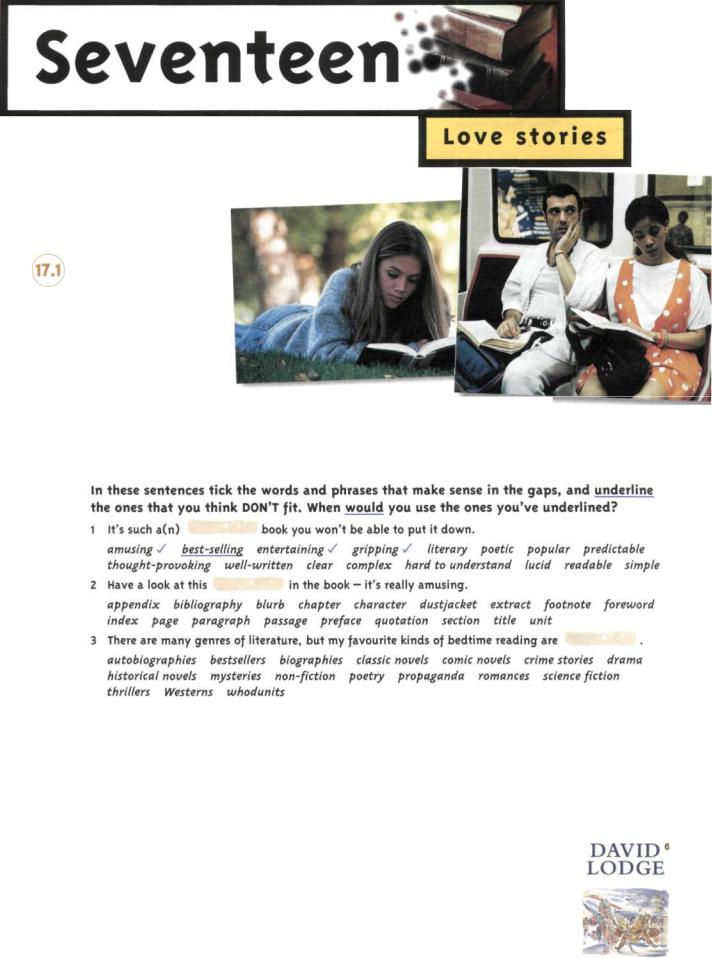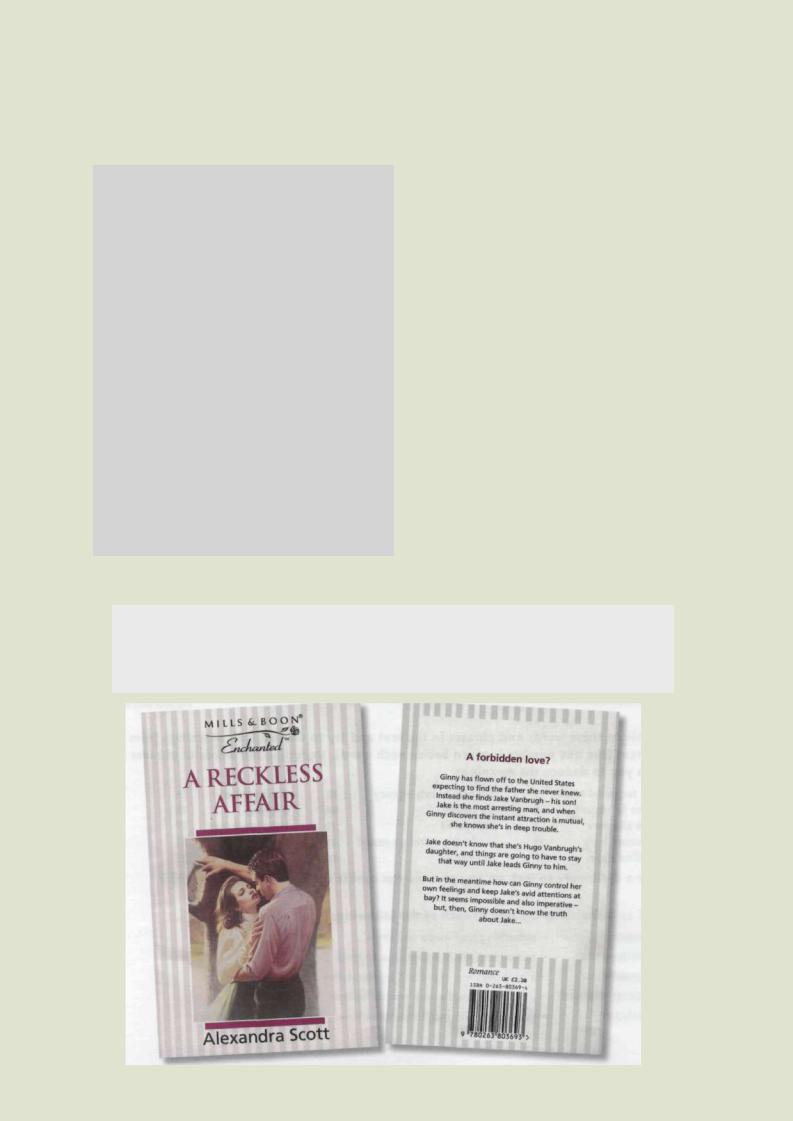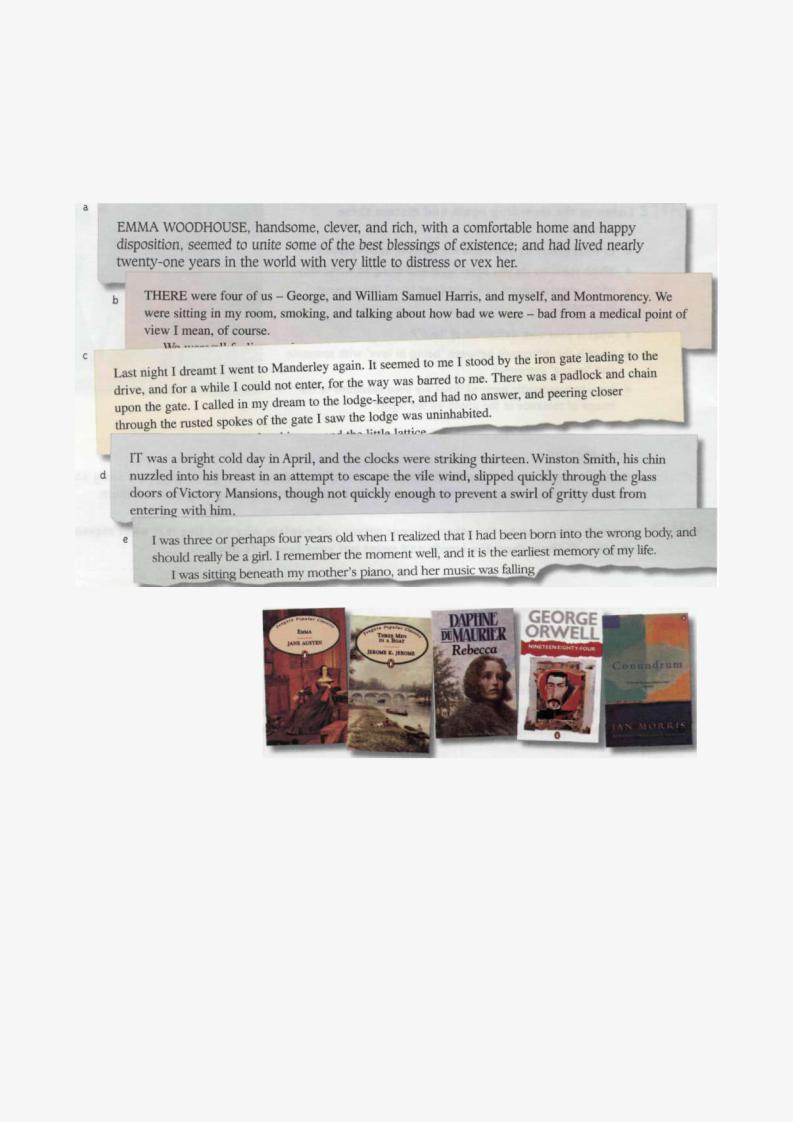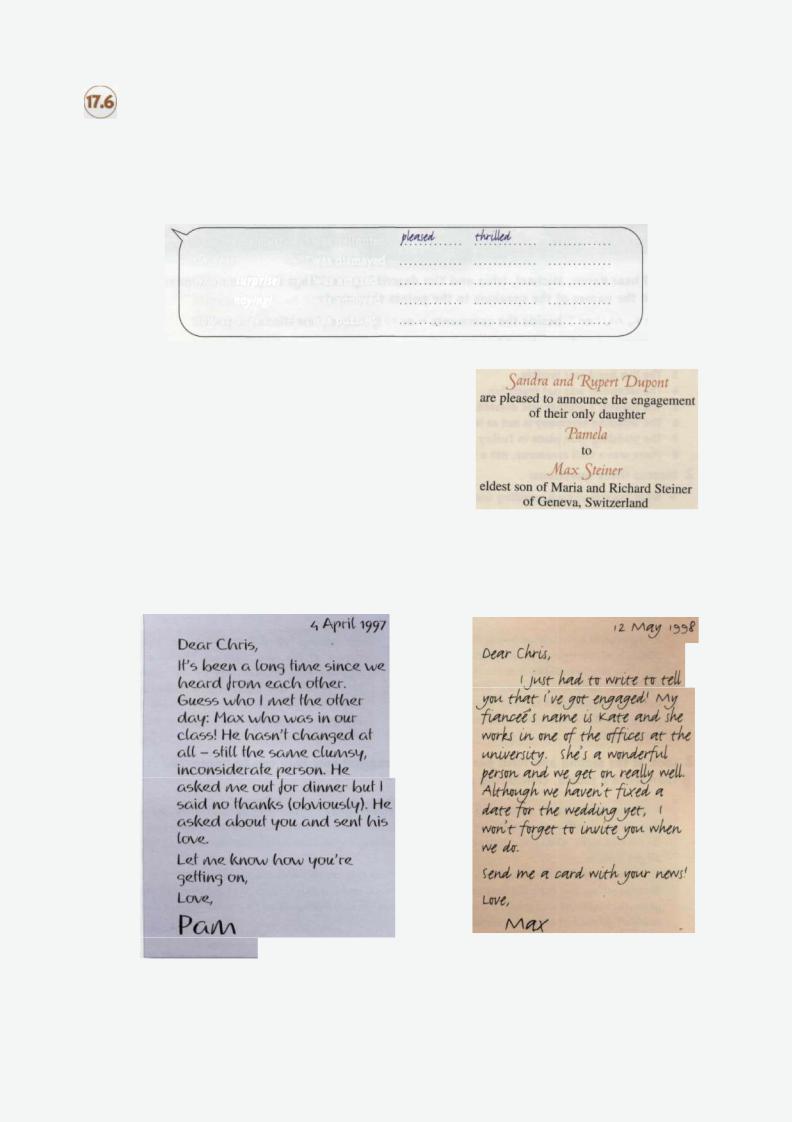Conditional sentences
Grammar
Discuss the differences in meaning between these sentences:
1 When it rains our roof leaks. If it rains our roof will leak.
When it rained our roof would leak.
If it rains our roof leaks.
If it rained our roof would leak.
2 I'd go first class if I could afford to. |
I'll go first class if I can afford to. |
I go first class when I can afford it. |
I'll go first class when I can afford it. |
I'd have gone first class if I could have afforded it.
3He could get a rise if he asked his boss. He might get a rise if he asked his boss. He should get a rise if he asks his boss.
He would get a rise if he asked his boss. He might get a rise if he asks his boss. He will get a rise if he asks his boss.
4 If you should see him, give him my love. If you happen to see him, give him my love. If you see him, give him my love. When you see him, give him my love.
5You should save your money in case you want to go on holiday. You won't be able to go on holiday unless you save your money.
6If only I hadn't spent all my money and had saved some! If I hadn't spent all my money and had saved some. . .
Correct the errors in these sentences - one sentence contains no errors.
Particularly in FORMAL style, the structures in red are sometimes used. Rewrite each sentence beginning with / / . . .
1Were it not for his strict diet, he would have put on even more weight. If
2Had he realised how long the exercise plan would take, he would never have started.
"f
3Should you see her tonight, please remind her to get in touch with me. If
Fill the gaps in these sentences:
1 |
|
the weather |
more favourable, |
|
we |
enjoyed our holiday more. |
|
2 |
Should |
enough space, continue your work |
|
on a separate sheet. |
|
|
3 |
Were |
disparity between our incomes, |
|
|
I |
feel so envious. |
|
|
4 |
Had they |
that the exam |
|
so |
|
difficult, they |
more time revising for it. |
5 |
|
wish us to send you a sample, please enclose |
|
a cheque for £5. |
|
|
6 |
I |
have plenty of money now, |
for having spent it all |
New Cambridge Advanced English
(•)Read this informal note and use the information in it to complete the numbered gaps in the more formal letter. Use NO MORE THAN THREE WORDS in each gap - but don't use the same words that are in the informal note.
INFORMAL NOTE
FORMAL LETTER
1 Find out your partners' answers to these questions:
The -tell-tale signs of stress
Do you feel guilty when relaxing - uneasy if not 'on the go'? Do you lie awake worrying about tomorrow?
Are you tense ... does your neck feel 'knotted-up'?
Are you impatient or irritable - do you interrupt when others are talking?
Do you feel that you have a lot on your mind - have difficulty concentrating?
Are you smoking or drinking more - do you eat in a hurry? Does life seem full of crises - are you always having rows? Do you find it difficult to make decisions?
Do you feel frustrated when people don't do what you want? Do you frequently experience a butterfly stomach, a dry mouth, sweaty palms or a thumping heart?
If you've said yes to some of these, read on . . .
2 What advice would you give to someone who answered Yes to each of the questions above? Here are some useful phrases:
. . .If I were you |
. . .The best thing to do is |
|
. . .If you don't |
. . .you'll |
. . .It's a good idea to |
Have you tried . . . -ing? |
|
.Why don't you |
. . ? |
. . .You could always |
Try . . . -ing instead of . . . -ing. |
|
|
|
• 3 One of you should look at Activity 11, one at 15, and the other at 28. You'll each have two pieces of advice to pass on in answer to this question: What can l do to avoid stress)
11 Imagine that you have SOME of these problems. Take it in turns to ask your partners for advice, each time on a different problem.
. . .My problem is |
|
|
|
|
|
|
|
|
I can't sleep. |
|
I keep oversleeping |
|
|
|
|
|
|
|
I always wake up early. |
|
I keep waking up in the night. |
|
I snore. |
|
|
|
I'm always tired. |
|
|
|
|
|
|
|
I need to lose weight |
|
|
I keep getting headaches. |
|
|
I need to get fit. |
|
|
Ikeep getting backache. |
|
I can't stop smoking. |
|
I lose my temper a lot. |
|
I can't concentrate on my work. |
|
|
|
|
|
|
|
I don't have time to revise or do homework. |
|
I can't remember vocabulary. |
|
|
I always panic when I have to take an exam. |
|
I don't have time to take exercise. |
|
|
When I get home I just flop in front of the TV. |
|
It's too much trouble to prepare healthy food. |
|
It's easier to drive or go by bus so I never walk. |
. . . What should I do?
You can react to your partners' advice by saying:
That's easier said than done. That's all very well, but. . .
That sounds like a good idea, but. . Hmm, I'm not sure that would work.
2Imagine that a friend has written to you saying that he or she has ONE problem from EACH group of problems above. Write a letter in reply giving your advice (about 250 words).
New Cambridge Advanced English
First aid
Creative writing
Note down the things you WOULD do and WOULD NOT do if you were first on the scene in each of these these cases:
Snake bite - in Britain the adder (viper) is the only poisonous snake and its bite is rarely fatal (there may be more poisonous snakes in your country)
Epileptic seizure -10% of people have some form of epilepsy and a fit can be dangerous if not handled properly
Shock — all major injuries can bring about shock, a medical condition where the heart and circulation progressively lose power
Student A should look at Activity 9, В at 16 and С at 31. Read the suggested treatment and then explain it to your partners in your own words.
Decide how you would treat:
someone with a suspected broken/fractured arm or leg someone who has bumped their head and feels dizzy someone who has been rescued from drowning
Write instructions on how to treat TWO of the patients described in B1 to be included in a first-aid manual for staff at your college or place of work (about 250 words).
Hearts, hands, legs and feet
Idioms and collocations
Fill the gaps in these sentences with suitable forms of heart, hand, leg, foot or feet.
1 Even if it's hard to keep up your exercise programme, don't lose
2You can trust her, I'm sure she has your interests at
3If he's in hospital I'm sure he's in good
4 A lot of the staff are off sick, so we're rather short-
5 Ask someone who's been working here for years - one of the old
6We had to learn the words by
7You can do it by yourself, I'm sure you don't need me to hold your
8 |
My new job was hard at first, but I eventually found my |
P. |
9 |
I used to really enjoy keeping fit but now my |
|
isn't in it. |
10 |
The new manager was given a free |
to restructure the company. |
11It's you that must decide - the decision is in your
12I know you're upset but try not to take it to
13 |
They refused to help us, but in the end they had a change of |
|
14 |
What he did was quite unjustified - he hasn't got a |
to stand on. |
15 |
We decided not to enter for the competition because we had cold |
|
16 |
I used to play a lot and I still play occasionally to keep my |
in. |
17If you need help, let me know and I'll give you a
18Don't worry, leave it to me - I have the matter in
19I didn't mean what I said, I was only pulling your
20 |
We all had to do as we were told when she put her |
down. |
21 |
I shouldn't have mentioned his ex-wife - I think I put my |
in it. |
22 |
Don't take it seriously, it was only a light- |
remark. |
23 |
When you've finished this work you'll be able to put your |
up. |
24 |
When she told him she was leaving him, it almost broke his |
What do you enjoy reading?
Vocabulary
Ask each other these questions: |
|
• What were the last two books you read? What were they about? Did you enjoy them? |
|
* How much time do you spend reading . . . during the week? . . . at weekends? |
on holiday? |
Small World
Reading
1 Read the passage opposite.
2Discuss these questions about the text:
1 Is this the kind of book you'd like to read more of? Why (not)?
2 Do people read 'Bills and Moon' romances (or photo romances) in your country? 3 How do you predict the story that Cheryl was reading will end?
4 How do you predict Cheryl's own story will end?
5 Do you think Cheryl's job sounds 'dull and monotonous'? In what way? 6 What kind of person do you imagine Cheryl to be?
7 Give some examples of jobs generally regarded as 'glamorous' or 'satisfying'.
8 |
Small World |
What is the difference between a proposition (line 32) and a proposal? |
9 |
What did you enjoy most in this passage? |
17.3) How romantic are you?
Reading and Listening
O Read this article and fill each gap with one suitable word.
In her arms, he melted . . .
FOR something that money can't buy, love sells well. Harlequin Enterprises, a subsidiary of Torstar, a Canadian
publisher, knows that better than |
1 |
. A mix of |
lush locations ("from the 2 |
|
she felt herself |
lifted on to Rodrigo Aviles's saddle, Rebecca Harper knew she had definitely wandered off the tourist trail in Baja"), and
lusher characters ("Arminel knew that her holiday friendship
with Rhys Beringer was no more than that, a friendship"),
Harlequin's simple 3 last year produced
C$348m ($300m) in sales and C$58m in operating profit.
British and Australian pulp-passion readers know them under the Mills & Boon imprint.
|
Harlequin works more like a periodical publisher than a |
4 |
publisher. Over 60 new 5 |
appear each month. Distributed through newsstands and
mail-order rather than 6 , all go out of print
within weeks. Priced at under $3 and fewer than 200 pages long, the books are cheaper than most magazines, and take
no 7 to read.
To keep the titles flowing, Harlequin maintains a vast
stable of regular 8 |
. Around 600 are managed |
from the firm's Toronto and New York offices, 350 from |
London. Few contributors write full-time: one of the most |
popular started 9 |
as a bank cashier; most are |
housewives or slumming journalists. To keep their output
consistent, Harlequin issues them with 10
instructions on characterisation and plot. The hero must be "overwhelmingly attractive - that means he probably isn't bald, short or fat," suggests an introductory tape. Happy
endings are11
Harlequin's marketing strategy is as simple as its editorial
one. Different sub-brands aim at different 12
of reader. The relatively explicit Temptation series, launched six years ago, aims at younger women. Harlequin's Medical
Romances 13 |
in war-time love stories about |
injured soldiers and caring nurses. Latest in the series: |
Starsign Romances ("too late for her to avert her |
14 |
now, she decided, holding her aloof Virgo |
stare on his smiling face"). Harlequin also has a series
celebrating that most romantic of unions, the single European
market. Each book's 15 |
will be from a different |
EU country. Yes, even Belgium. |
|
1Look at this blurb from the cover of a Mills £ Boon Enchanted® romance. Discuss what happens if the roles are reversed (i.e. man falls in love with his mother's daughter).
2Draft a blurb (about 100 words) for the back cover of another romantic novel.
3Look at each other's blurbs.
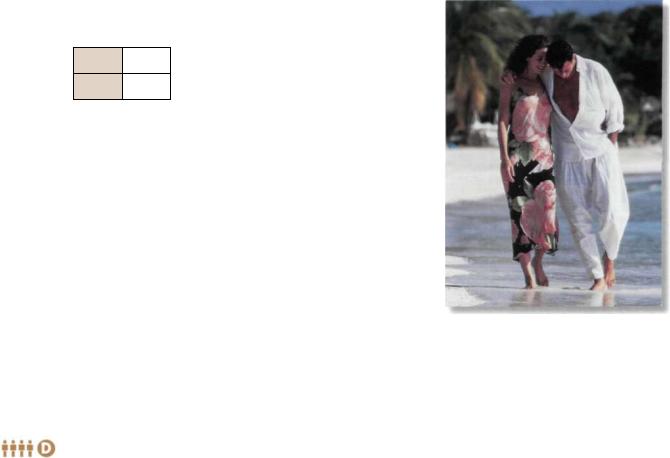
New Cambridge Advanced English
IYou'll hear nine people answering this question: 'Do you believe in love?' Count up the number who give (or imply) the answer Yes or the answer No.
Yes
No
2Listen to the recording again and discuss these questions:
•To what extent do you share the views of each speaker?
•Which speakers do you agree with and disagree with? Why?
•Which speaker would you most (and least) like to meet in person?
•What is your own definition of 'love'?
•What is the difference between 'being in love' with someone and 'loving' someone?
•Are you a romantic person? What are your reactions to the image of romance in the photo on the right?
Preparation
Find a cassette of a favourite British or American love song - or, if you prefer, a song about
something else. Write down the words so that the others in your group can see them.
Present your song to the others in your group and explain why you like it - what makes it special? Show them the words and point out your favourite lines.
First meetings
Speaking and Listening
Discuss these questions:
•In your country/city where do young people meet to spend time together?
•At what age do people usually get married and how long do engagements usually last?
•How have romantic relationships changed since when your parents were young?
We asked some people to describe their first meeting with their present partner.
This is how their replies began:
I was on my way home from junior high school. . .
I'd arranged to have a drink with a friend of mine.. .
We met at a fancy-dress party. ..
I was going out to the cinema with a group of friends . ..
I first met him when he was on a boat and I was on the river bank . . .
1Use your imagination to work out how TWO of the stories might have continued.
2Tell your stories to each other.
3 Now listen to the real stories - how close were your ideas to what really happened?
First paragraphs
Reading and Speaking
These are the opening paragraphs of five well-known books. Note down what kind of book each extract seems to be from.
Highlight TWO phrases in each extract that intrigue you and encourage you to read on.
One of you should look at Activity 13, the other at 21. You'll each have more information about the books to share with your partner.
1Make notes on a favourite book of yours. Explain why you liked the book, what it is about and why you recommend it to other readers. Try to cover these aspects:
•Style - how well-written and readable it is
•About the writer - his or her background and other books
•The characters - what kind of people they are
•Plot - what happens in the story
•Setting - where the action takes place
•Why you enjoyed it - and why other people would enjoy it
2Prepare a short talk about it to give to the other members of your group or the whole class.
3Give a presentation about the book and answer questions about it.
1Write an article (about 250 words) for a student magazine, describing the book and persuading others to read and enjoy it.
2Show your article to two or three other people and read their work too.
New Cambridge Advanced English
Expressing feelings
Effective writing
©In a conversation we often show our attitude or feelings through smiles, frowns, sympathetic expressions, etc. In writing we have to express these feelings in words.
Add three more words that express each of these feelings. Use a dictionary, if necessary.
How marvellous! —> I was delighted
Oh dear! —> I was dismayed
What a surprise! —> I was amazed
How annoying! —> I was annoyed
How strange ! -> I was puzzled
Imagine that you've just received this card from Pam and Max, two former classmates of yours. It's quite a surprise because you didn't even know Pam and Max were seeing each other.
The last time you heard from Pam was in 1997 when she sent you this note:
The last time you heard from Max was in 1998 when he sent you this letter:
2Write one letter (about 100 words) to Pam, and another letter (about 100 words) to Max, and a note to Pam's parents (about 50 words), thanking them for sending you the card.
(Look at Activity 33 for some useful phrases that can be used when you're sending someone greetings or congratulations.)

